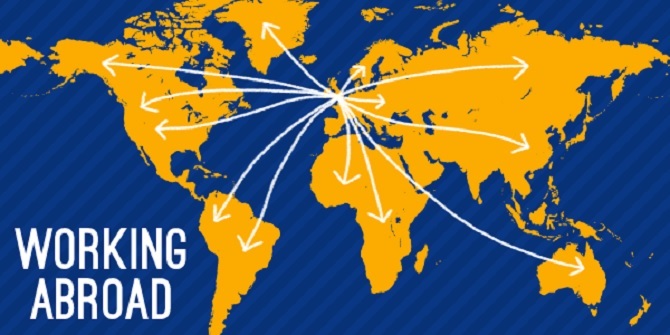Last term, the LSE Volunteer Centre launched its ‘Take Action’ Seminar Series which aims to explore some of the most pressing issues faced by society and how the LSE community can make a difference. In our first session we focused on homelessness, a national issue that is right on LSE’s doorstep.
Who was there?
We were joined by two different charities that work with those affected by homelessness across the UK. Philip Hunter brought his expertise as Corporate Partnerships Executive at St. Mungo’s, a charity that aims to rebuild lives through outreach and support programs. DePaul UK, a charity that supports young people facing homelessness to achieve their potential, was represented by Tony Packwood their Community Fundraiser in London & the South East.
LSE’s own Professor Christine Whitehead also joined the panel bringing her expertise of applied economics in the fields of housing economics, finance and policy and as Deputy Director of LSE London. Christine is also a member of the LSE Homelessness Project, a new partnership co-chaired by LSE SU General Secretary David Gordon, who was also on the panel.
The Context of Homelessness in the UK
When discussing homelessness, Christine explained the two different strands that are most commonly referred to: people who are sleeping rough (on the streets) and those who are in temporary housing, which is more often families. Homelessness is not a new problem, and LSE was almost the centre of single rough sleepers in the 1980s due to its proximity with Lincoln’s Inn Fields. The Fields were the central London location to get a meal, with multiple charities attending every night. However, rough sleeping has more than doubled in the last 10 years and there has been a 77% increase in those who are sleeping rough for the first time this year in comparison to last year.
How do people find themselves homeless?
Long-term causes such as family breakdown, substance use and temporary housing issues were addressed. Tony from DePaul focused on how young people often find themselves sofa surfing due to family breakdowns, and they are often seen as the ‘hidden homeless’ population. Mental and physical health problems are also key reasons as to why people find themselves homeless, and Philip stressed that government cuts have left local services for single homeless people with a shocking £1bn a year funding gap.
Homelessness and COVID-19
No part of the world has been left untouched by the global pandemic and homelessness has been severely affected. In terms of homelessness in the young population, DePaul UK saw a surge in family breakdowns as lockdown put a lot of stress and pressure onto the family unit. Meanwhile, their Night Stop service (a team of volunteers around the country that take a young person in for a night) was stopped due to guidelines.
Many of the aforementioned causes of homelessness have been exacerbated, as the pandemic causes an increase in health issues and a reduction in government spending. As the news constantly tells us, the affect COVID-19 has had on the economy has led to increase unemployment which has a grave impact on the homeless population. The pandemic also had a massive effect on the gig economy which massively impacted those in transient work, pushing some into homelessness.
However, during the height of the pandemic the government funded the ‘Everyone In’ scheme, where local councils were given substantial sums of money to provide emergency shelter for homeless people. St Mungo’s were able to make history in housing 3000 extra people through the hotel scheme, on top of the near 3000 they already accommodate on any given night.
The Homelessness Project at LSE
David Gordon’s predecessor, Zulum wanted to react to and utilise the increasing concern and compassion students had for the homeless population surrounding the LSE campus. Thus, giving birth to a broad partnership between LSE, LSE SU and St Mungo’s through the Homelessness Project, now co-chaired by your LSESU General Secretary. In consultation with St Mungo’s, the Project will provide the community with fundraising opportunities, volunteering roles, research opportunities and training for staff.
This is the first year of the project and the LSE community will be hearing much more about it in the coming months.
What can students do to take action?
The charity sector has been hit hard financially by the pandemic, with normal funding channels drying up due to cancelled big fundraising events, lack of sponsors and reduced income from corporate partners. Whilst income is declining, the costs of delivering their services are increasing as more people need their services and PPE needs to be bought. The charity representatives on the panel stressed the need for fundraising being one of the key things students can do to take action.
StreetLink was also suggested as a great way students can help people who are homeless around them. The project works as an app whereby the user sends an alert to the local authority or outreach service if they are concerned about someone sleeping rough. On top of that, they really encouraged just having a chat!
Whilst the situation with volunteering is constantly changing, due to COVID, there are opportunities to help with different charities. Keeping an eye on CareerHub and on relevant charities websites is the best thing to do. Potential roles could include: campaigning, research, marketing and other areas.
Christine also spoke about the need for research in the area. She assured students that they will be informed of any opportunities in the future, but also suggested those who wanted to dedicate dissertation or research projects to the cause should chat with their academic advisors.
The LSE Volunteer Centre would like to thank all those who joined us for this panel discussion and the speakers who gave their time to enlighten us on homelessness. If you have been inspired by this session or blog, check out CareerHub where we’ll be advertising volunteering opportunities within this area and access our support services, like booking an appointment with the Volunteer Centre Manager.





